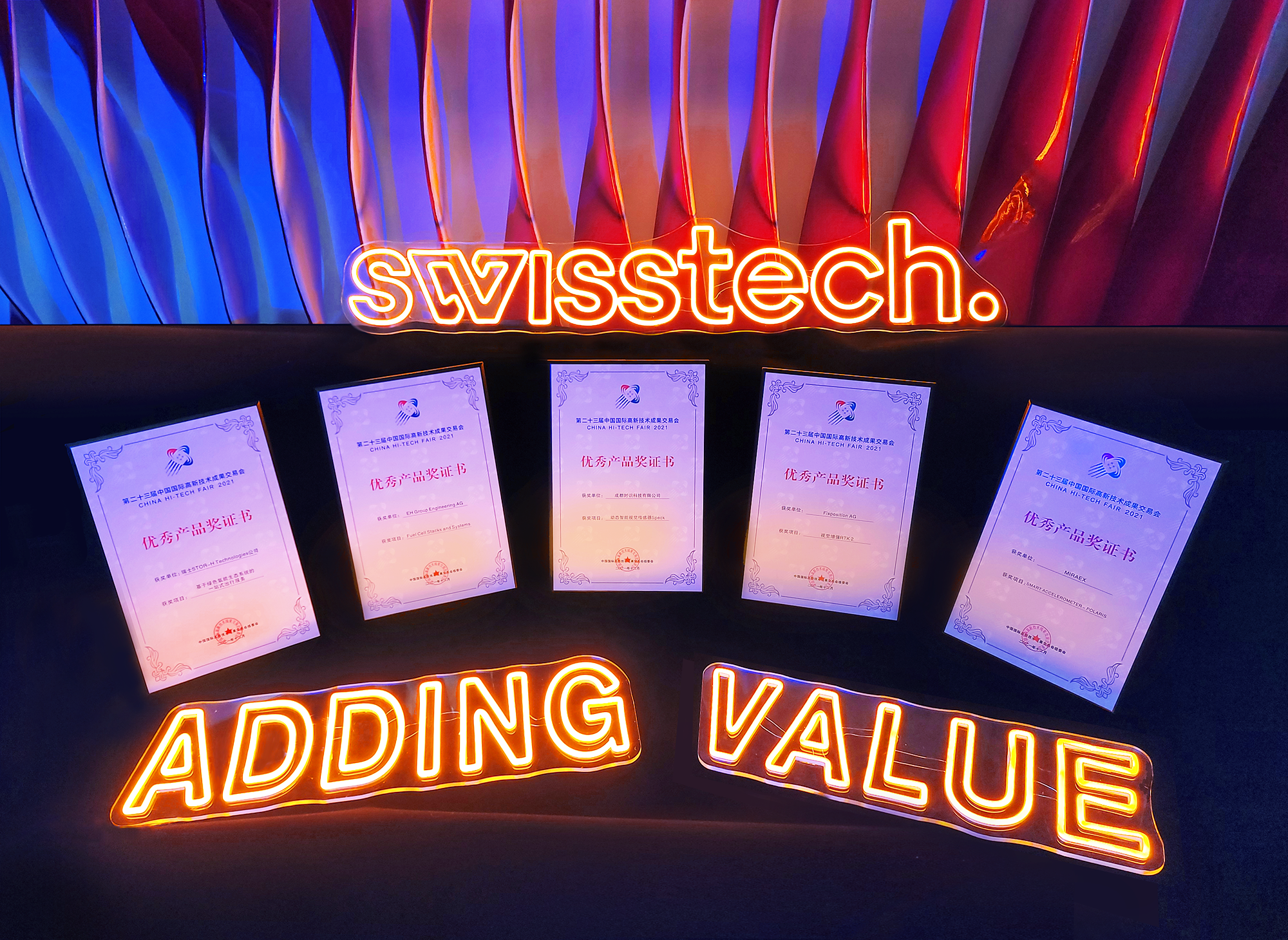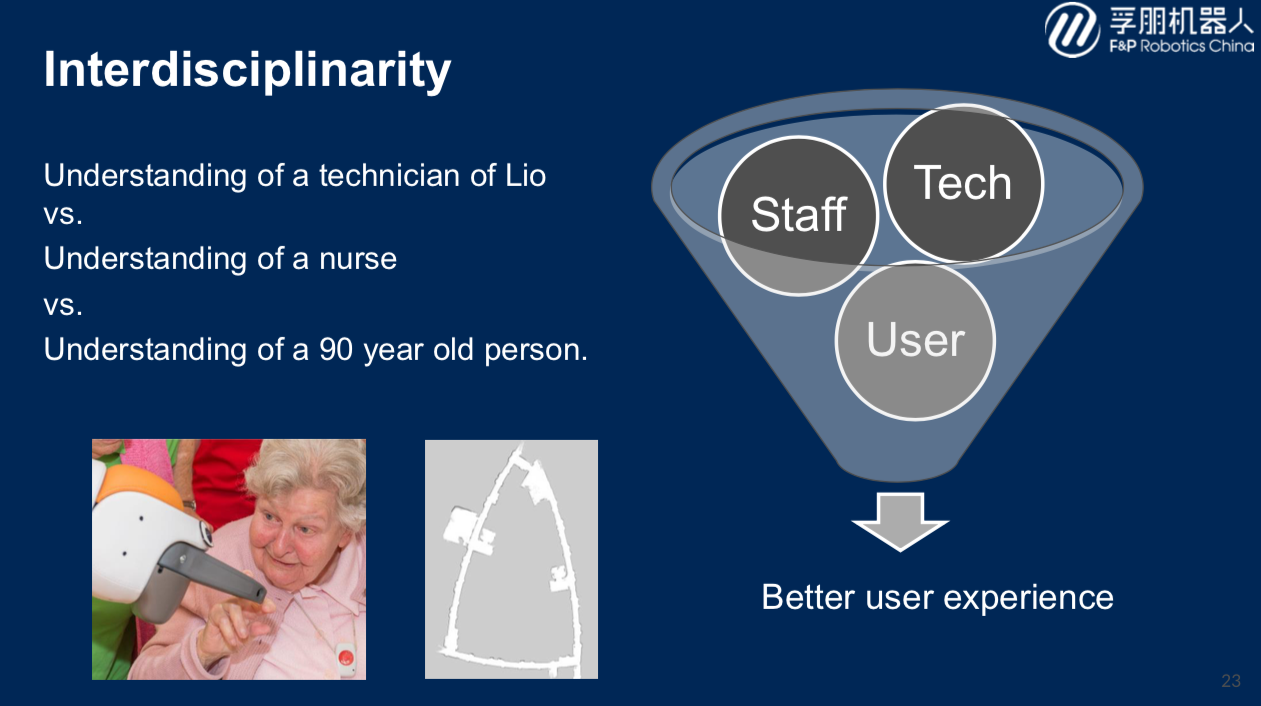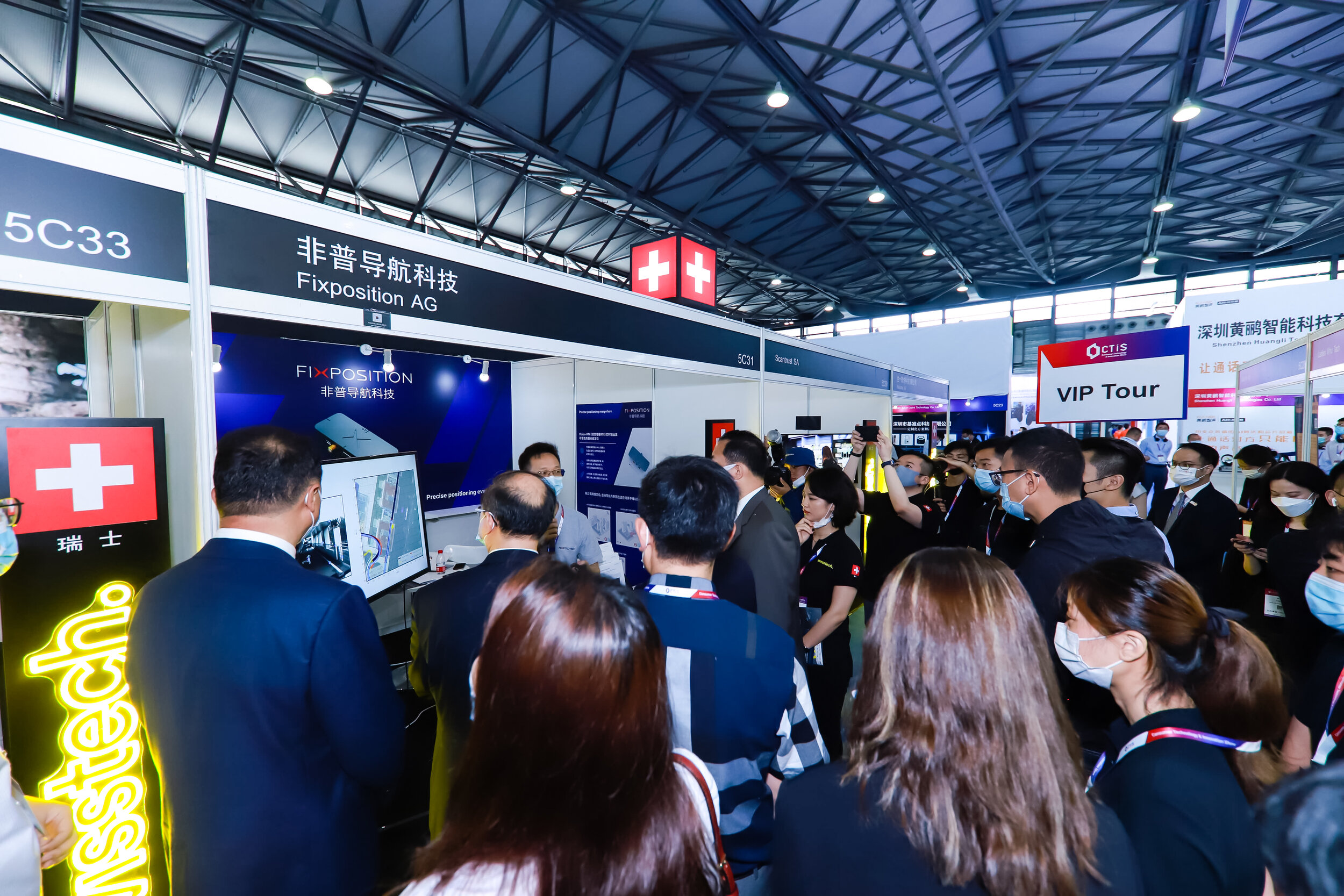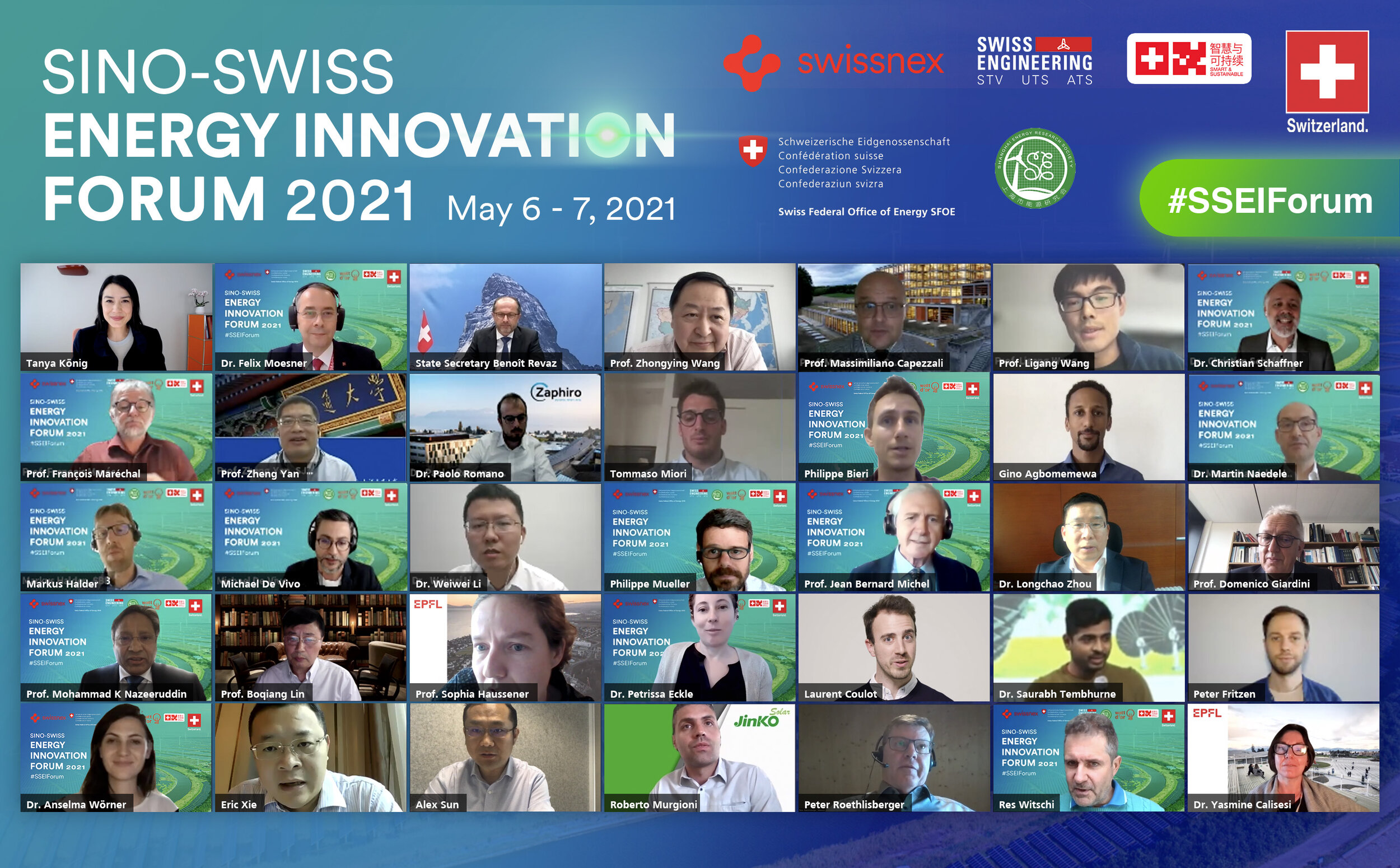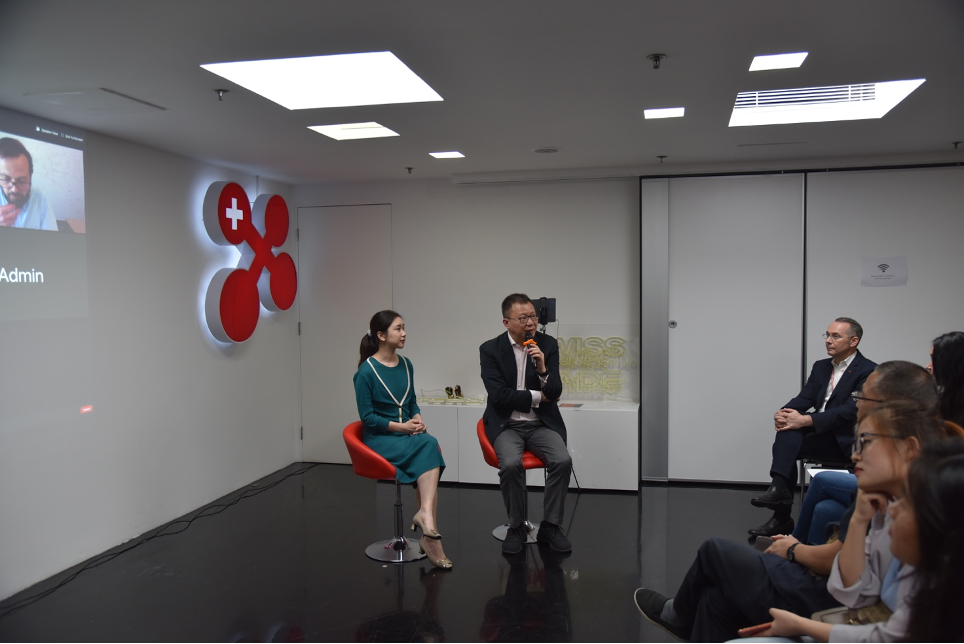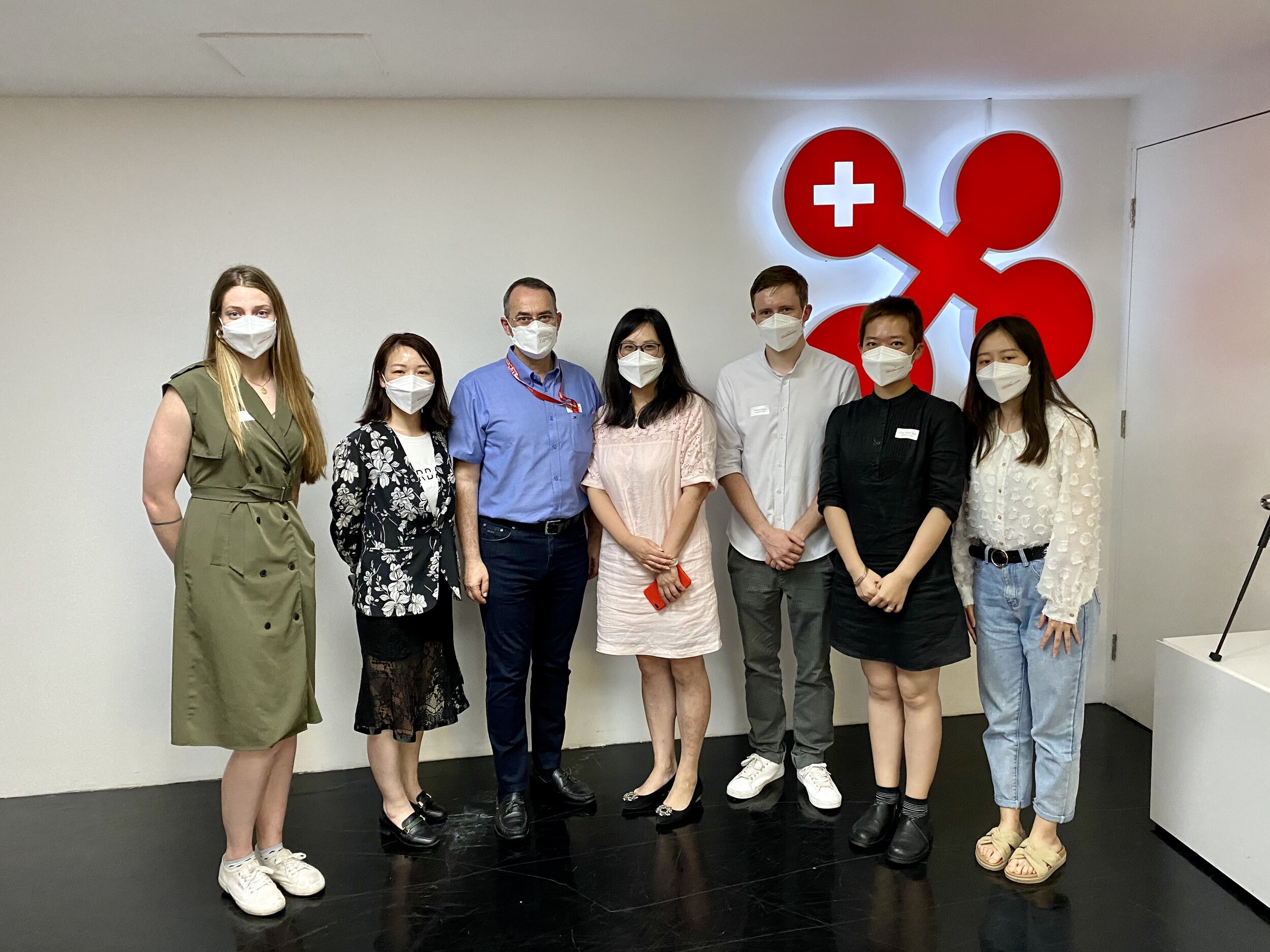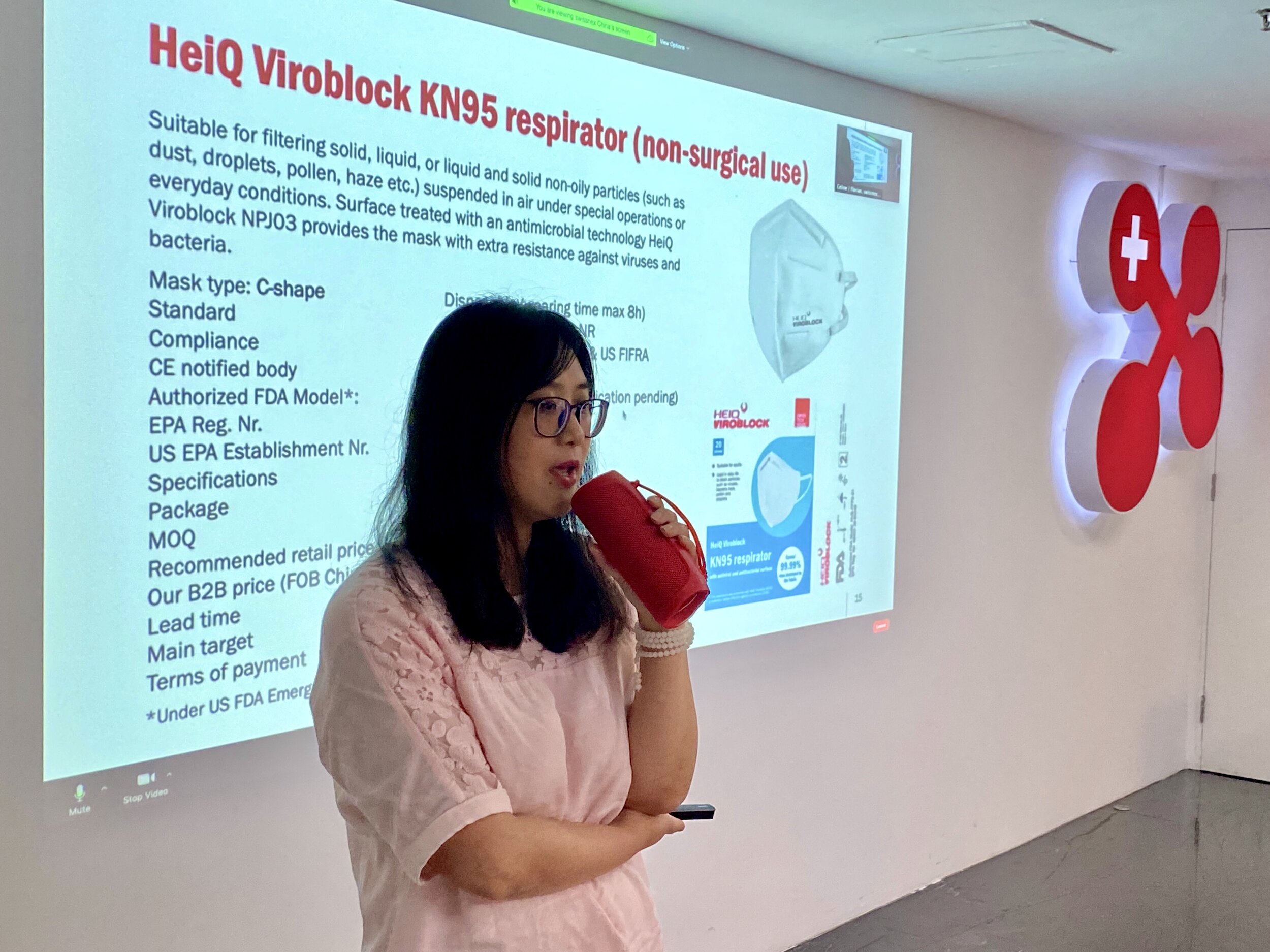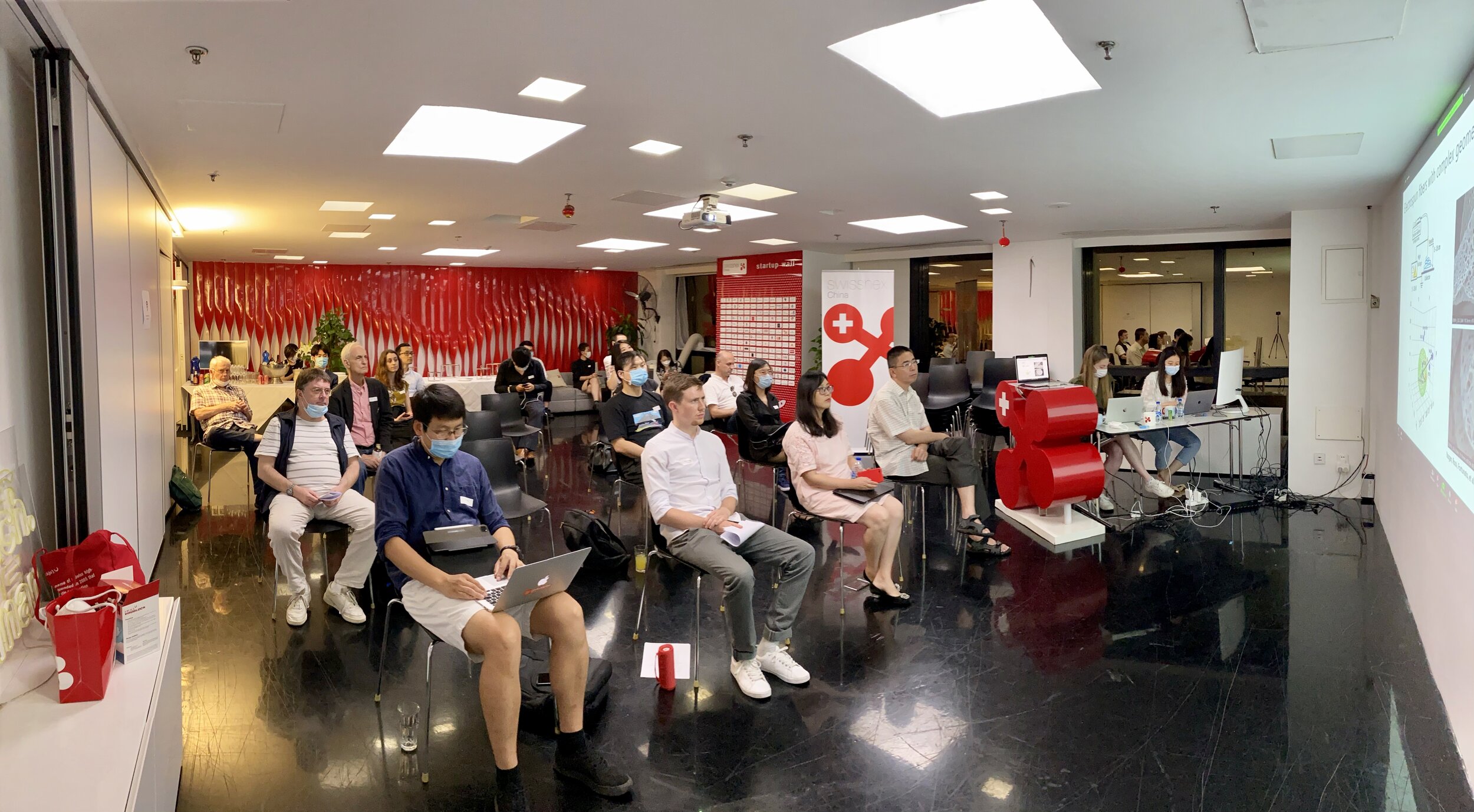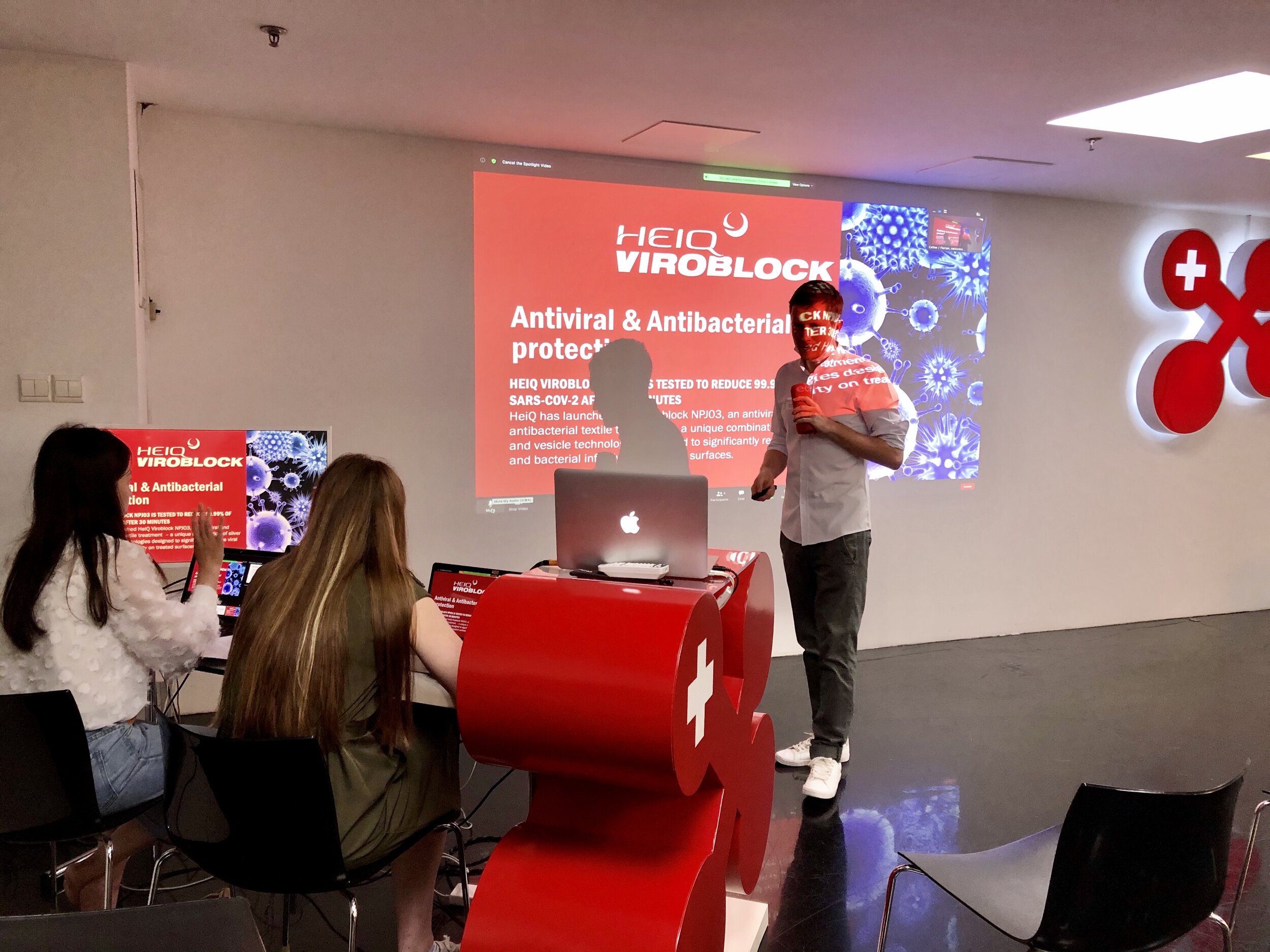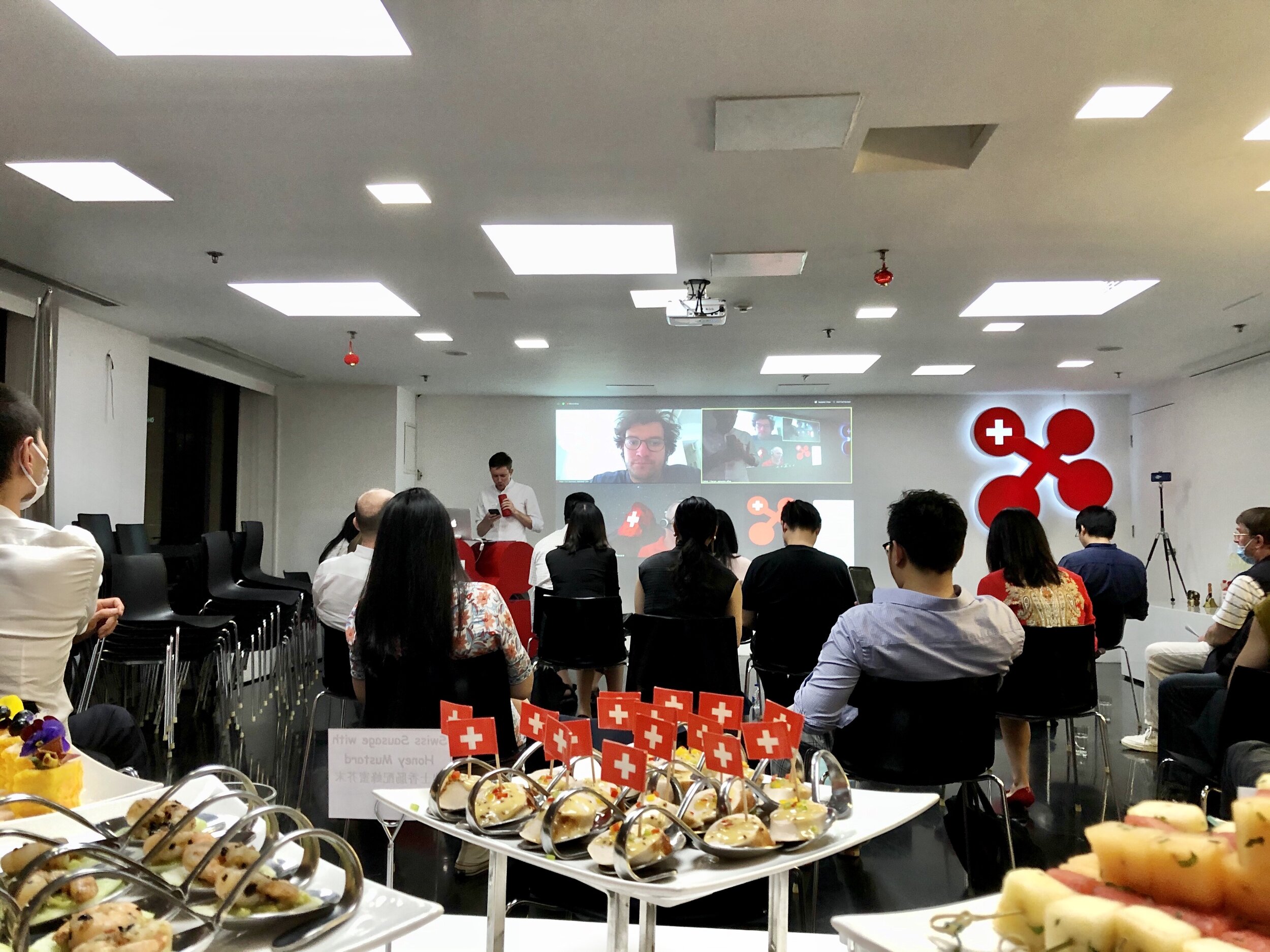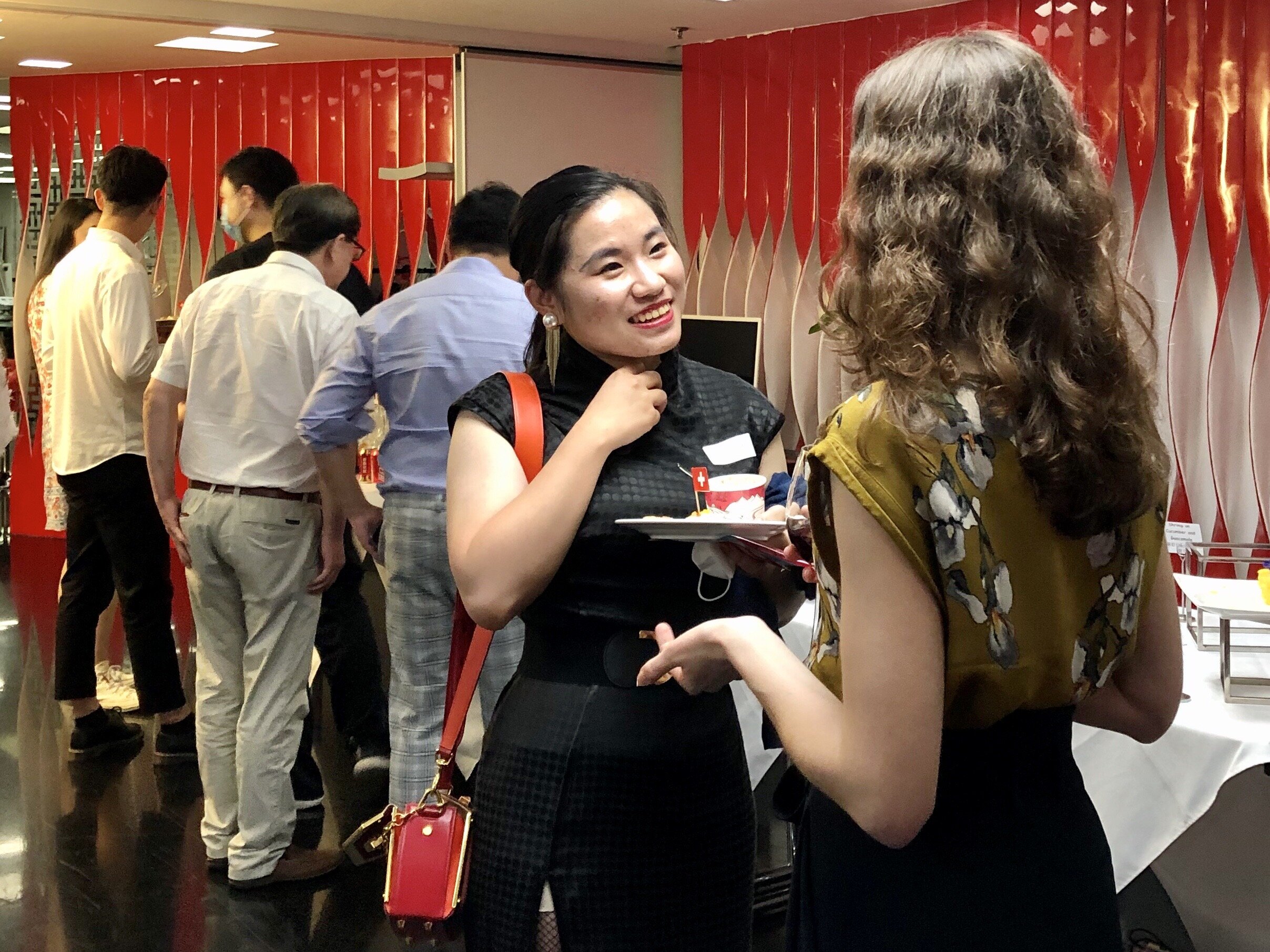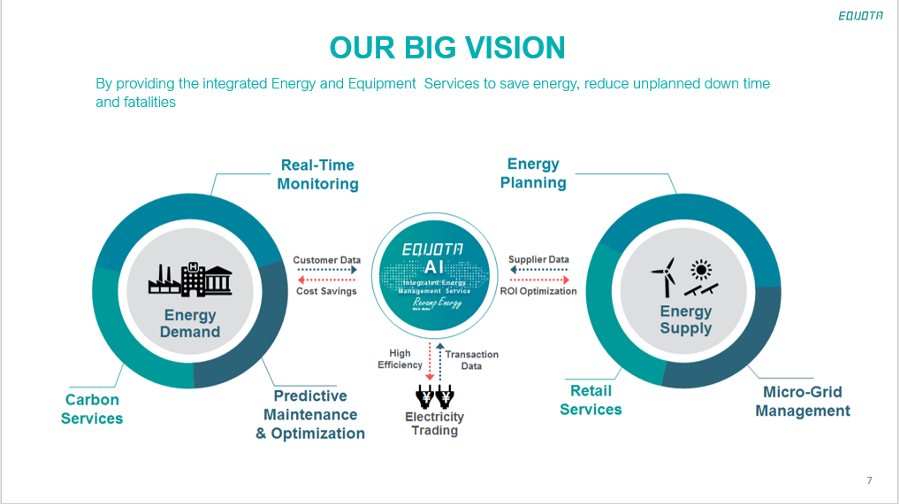EH Group Engineering, Fixposition, Miraex, STOR-H and SynSense was recognized with the Excellent Product Award at the 2021 China Hi-Tech Fair for their innovations in the fields of vehicle technology, positioning technology, photonics and quantum solutions, green technology, and neuromorphic intelligence. Additionally, STOR-H and SynSense were selected for the Premium Innovation Products Showcase: the only international exhibitors to receive the honour.
Shanghai, January 5, 2022 – At the 2021 final showcase of Switzerland’s global swisstech campaign in China, five Swiss startups that participated virtually at the 23rd China Hi-Tech Fair – which took place December 27-31, 2021 – received accolades for their ground-breaking innovations. The swisstech participation presented a cohort of 19 Swiss startups at the tech show, aiming to raise Switzerland’s profile as an innovative location for business and to promote the visibility of Swiss companies and universities abroad.
Held annually in Shenzhen, one of China’s most dynamic innovation hotspots, China Hi-Tech Fair gathers the world’s top innovations, where thousands of domestic and international companies compete to showcase their innovative products. China Hi-Tech Fair’s Excellent Product Award is bestowed upon exhibitors who present exceptionally innovative high-tech products and projects.
The winners are:
EH Group Engineering | Excellent Product Award
EH Group is a Nyon-based vehicle technology startup that focuses on the design & production of innovative & high-performance fuel cell technology for a decarbonized future. EH Group’s uniquely redesigned fuel cells are more compact, lightweight, and with higher system efficiencies. In addition, its proprietary manufacturing process under development will significantly reduce its costs.
Fixposition | Excellent Product Award
Fixposition is a Schlieren-based software startup and an ETH Zurich spin-off that provides B2B precise positioning solutions to the autonomous vehicle market and beyond, developing software specialized in deep sensor fusion of computer vision, global navigation satellite system (GNSS), inertial measurement unit (IMU) and wheel odometry data to ensure high reliability and availability of centimeter-accurate positioning anywhere where traditional positioning systems fail.
Miraex | Excellent Product Award
Miraex is an Ecublens-based IoT startup and an EPFL spin-off that develops manufacture and offers cutting edge photonic and quantum solutions for next-generation sensing, networking, and computing. It also builds quantum integrated circuits for high sensitivity measurements and distributed quantum computing infrastructures.
STOR-H Technologies | Excellent Product Award & Premium Innovation Products Showcase
STOR-H is a Geneva-based energytech startup that leverages significant intellectual property concerning the solid storage of hydrogen to enable zero-CO2 light mobility through the use of its STOR-H cartridges. The STOR-H technology allows “green” hydrogen to be stored safely in easy-to-use connected cartridges. These cartridges are distributed in vending machines accessible through a smartphone APP, eliminating the need for expensive and intrusive infrastructure.
SynSense | Excellent Product Award & Premium Innovation Products Showcase
SynSense is a Zurich-based neuromorphic intelligence startup and an ETH Zurich and University of Zurich Institute of Neuroinformatics spin-off that provides dedicated mixed-signal neuromorphic processors which overcome the limitations of legacy von Neumann computers to provide an unprecedented combination of ultra-low power consumption and low-latency performance. It has a prolific product matrix, including chips dedicated to vision processing, auditory processing and natural signal processing.
The swisstech China series is organized by Swissnex in China in partnership with ETH Zürich, EPFL, Innovaud, Greater Zurich Area, Switzerland Innovation, Venturelab, and the swisstech campaign partners Presence Switzerland, Switzerland Global Enterprise, Innosuisse, digitalswitzerland and Swissnex.
Further information on the swisstech China series:
https://www.swisstech-china.com/swisstech-series
About China Hi-Tech Fair
China Hi-Tech Fair is renowned as China’s largest and leading technology exhibition. It reflects the current state-of-the-art technology innovations and defines the technology and industry trends in China. Since its launch in 1999, China Hi-Tech Fair has steadily built up the networks of participants from across the globe. It offers an ideal platform for international cooperation and plays a vital role in boosting economic and technological collaborations between China and other countries.
About swisstech Campaign
The swisstech campaign is a public-private partnership supported by Presence Switzerland, Innosuisse, the Swissnex Network, digitalswitzerland and Switzerland Global Enterprise. The campaign aims to raise Switzerland’s profile as an innovative location for business and to promote the visibility of Swiss companies and universities abroad.
About Swissnex in China
Swissnex in China is the Science Consulate of Switzerland in China. As part of the Swissnex global network, we connect Switzerland, China and the world in science, research, education and innovation. Our mission is to support the outreach and active engagement of our partners in the international exchange of knowledge, ideas and talent. The six main Swissnex locations are established in some of the world’s most innovative regions: Boston, Brazil, China, India, Japan and San Francisco. Swissnex is an initiative of the State Secretariat for Education, Research and Innovation of Switzerland and is part of the Swiss Confederation’s network abroad managed by the Federal Department of Foreign Affairs.
#####
Swissnex in China official website: https://swissnex.org/china/
Swissnex in China LinkedIn: https://www.linkedin.com/company/swissnex-china/
Swissnex in China Weibo: https://weibo.com/swissnexchina
Swissnex in China Twitter: https://twitter.com/swissnexChina

